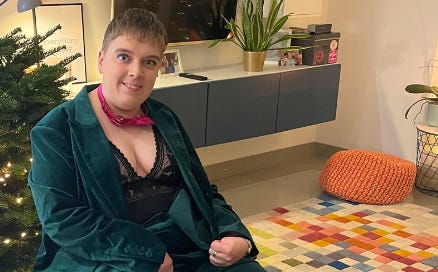Hello,
This is the last thing I will write this year and, somewhat incredibly, the last thing I will write while in my 20s. It’s hard when big birthdays coincide with Christmas and New Year not to feel a little reflective. And the truth is, birthdays can be difficult for everyone, but particularly for disabled people. No matter how cheerful one may be, n…
Keep reading with a 7-day free trial
Subscribe to The View From Down Here to keep reading this post and get 7 days of free access to the full post archives.


